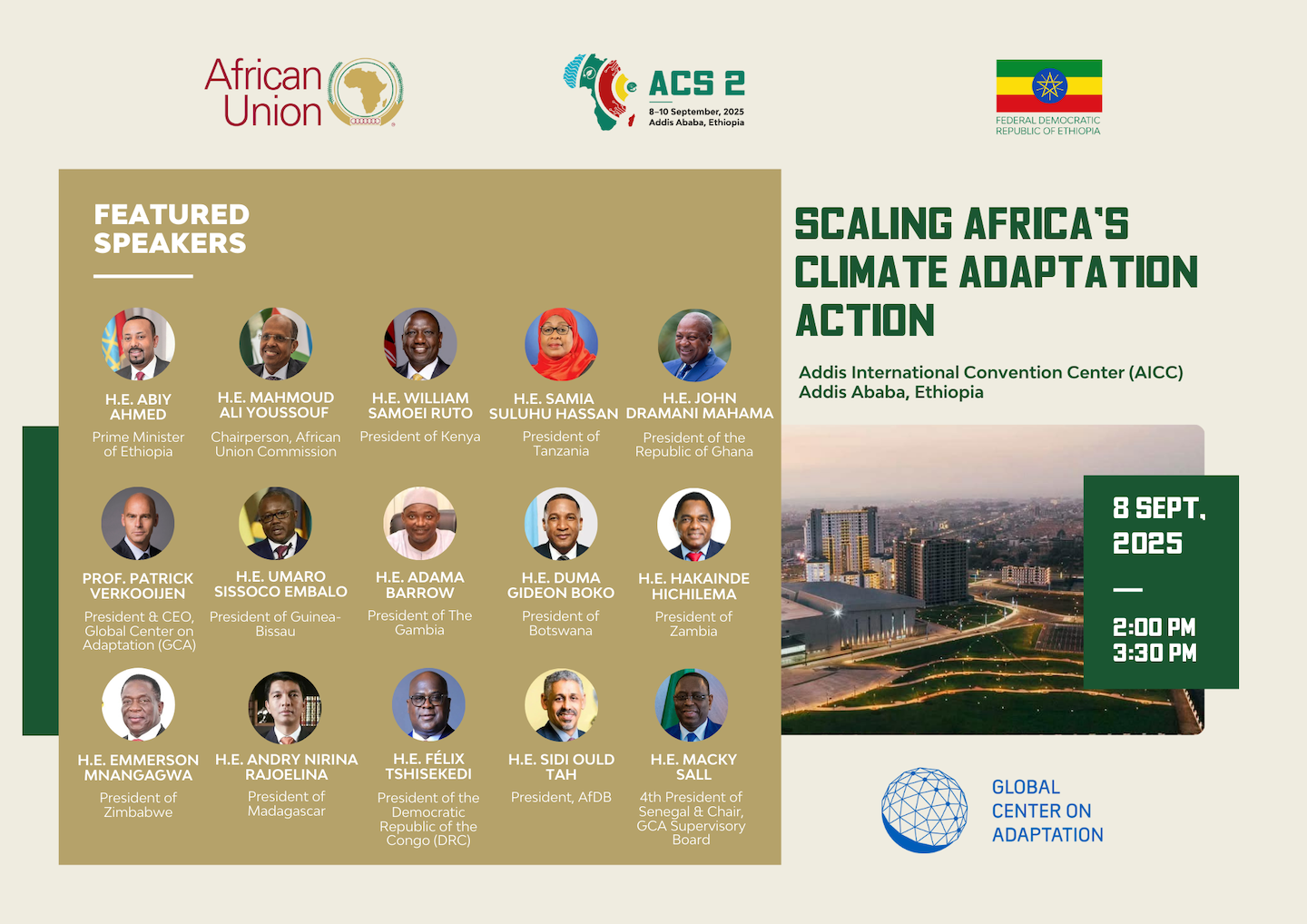Scaling Africa’s Climate Adaptation Action
The Second Africa Climate Summit (ACS2)
Background
Africa is at the frontline of the climate crisis. Floods, droughts, shifting rainfall patterns, and rising sea levels are already reshaping economies, communities, and ecosystems. Yet Africa is also at the frontier of solutions, from climate-smart agriculture and resilient infrastructure to nature-based approaches and innovative financing.
The challenge is scale. Implementing Africa’s climate priorities as defined in Nationally Determined Contributions will require trillions by 2030. While climate finance to Africa rose to around USD 43.7 billion in 2021/22, that only meets about 20 percent of the continent’s adaptation needs and finance needs must still quadruple annually to stay on track This gap isn’t abstract, it’s lost livelihoods, diminished growth, and stalled resilience.
But the path forward does not start from zero. Across the continent there are proven programs, homegrown initiatives, and regional platforms that are already delivering results. The task now is to take these successes to scale, moving from pockets of progress to continental transformation. That means mobilising much greater resources, aligning them with national priorities, and replicating models that work across borders.
Event description
This event, at the Africa Climate Summit, hosted by the Government of Ethiopia and the African Union Commission, to be held in Addis Ababa under the theme “Accelerating Global Climate Solutions: Financing for Africa’s Resilient and Green Development”, will highlight some of Africa’s most promising models. One example is the Africa Adaptation Acceleration Program (AAAP), of the Global Centre on Adaptation,, African Union Commission and African Development Bank has emerged as the world’s largest and one of the most comprehensive adaptation initiatives. Since inception in 2021, by years’ end AAAP is on track to shape some $25 billion in international financial institution investments in critical infrastructure, agriculture, water and other key services across some 40 African nations. Others include major regional water and agriculture programs, national climate resilience strategies, and networks of community-led adaptation. Together, they offer a blueprint for action that is African owned, locally grounded, and ready to grow.
Speakers
